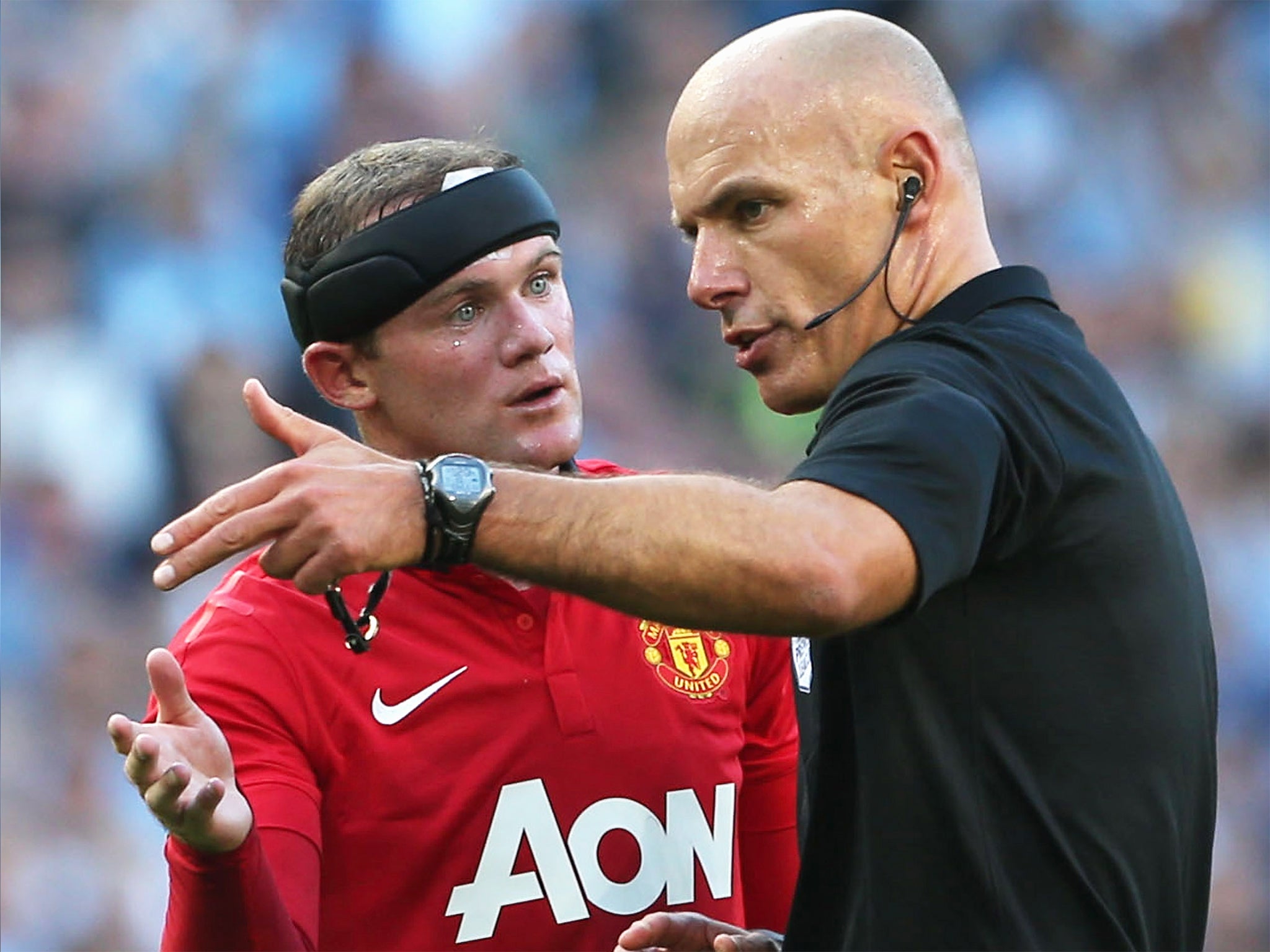Michael Calvin: Howard Webb has mission to explain as referees are called to account
New public face of officialdom has power to change the game

Your support helps us to tell the story
From reproductive rights to climate change to Big Tech, The Independent is on the ground when the story is developing. Whether it's investigating the financials of Elon Musk's pro-Trump PAC or producing our latest documentary, 'The A Word', which shines a light on the American women fighting for reproductive rights, we know how important it is to parse out the facts from the messaging.
At such a critical moment in US history, we need reporters on the ground. Your donation allows us to keep sending journalists to speak to both sides of the story.
The Independent is trusted by Americans across the entire political spectrum. And unlike many other quality news outlets, we choose not to lock Americans out of our reporting and analysis with paywalls. We believe quality journalism should be available to everyone, paid for by those who can afford it.
Your support makes all the difference.It didn’t take long for the humour to wear thin. There are only so many jokes that can be made on social media about the notion of Manchester United reeling from the retirement of Howard Webb as the Premier League’s principal referee.
Assumptions of bias and crackpot conspiracy theories go with the territory, and can be answered by a simple statistic: the most successful club in matches Webb officiated over the past five years was Manchester City, who earned an average of 2.41 points in each of their games he controlled.
Tribal absurdities and wilful ignorance may militate against unanimous acclaim, but his appointment as technical director of the catchily titled Professional Game Match Officials Limited is a significant diversion from the usual pre-season tittle tattle of transfer speculation.
PGMOL is an introspective, opaque organisation. The news that Webb’s duties will involve “a public-facing role, informing and educating on refereeing matters” represents a significant and welcome cultural shift.
Referees are second-guessed about everything from their eyesight to their bloodlines. They make far-reaching decisions in a fraction of a second, knowing their judgements will be replayed from every angle and at a variety of speeds.
The debate is conducted in shrill tones, in front of the sort of audience that is routinely manipulated by populists and posturing ninnies. It is the stuff of online click-bait and manufactured controversy. Dealing with the resultant rancour is tiresome and takes a strong personality.
Like Pierluigi Collina, the best referee of the preceding generation, Webb favoured prison-officer chic. His body language was assertive – the combination of bald dome, piercing eyes, and taut shoulders combined to demand respect and dissuade wannabe warriors from doing their worst.
Football is the most confrontational of professional sports, and referees bear the brunt of its emotional incontinence. Players may have disagreed with him when the adrenalin was flowing and the crowd was howling but they did not doubt his professionalism.
He was imperfect – he admits he should have dismissed Nigel de Jong, the Dutch midfield player, for his kung-fu kick on Spain’s Xabi Alonso in the 2010 World Cup final – but impressive. He is still relatively young, 43, but effectively goes out at the top, having been regarded as being unlucky not to emerge from the shortlist for this summer’s final in Brazil.
Webb began refereeing in 1989, starting off with an Under-11 match at Orgreave, the Yorkshire village that became synonymous with the 1984 miners’ strike. He progressed through the Northern Counties and Football League, eventually officiating in nine major tournaments, every domestic final, and the Champions League final.
The value of his new role will go beyond its formative responsibility of managing the training and development programmes for elite referees. He is a good communicator and privately has always favoured being able to explain some of his more contentious decisions.
Accountability is part of the entertainment module in modern sport. Webb would have been perfect as a TV pundit; Mark Halsey’s stint at BT Sport last season was marred by a dispute with Mike Riley, PMGOL’s austere and self-defensive general manager.
American television offers the best example of the genre. On Fox TV, former NFL rules official Mike Pereira explains controversial calls and analyses replay rulings before the referee announces his decision.
In an ideal world, referees would be free to outline their decisions, in the manner of a manager. Official reticence to scrutiny is understandable to a degree, given the post-match circus of accusation and counter-accusation, but it is ultimately self-defeating.
Referees would benefit from educated judgements. Webb has the opportunity to provide measured expert comment, and seems to be of sufficiently strong character to avoid becoming a slave to political correctness.
He’s used to the stick, and now has no secrets left to share. The announcement of his retirement included the previously unknown fact that his middle name is Melton. Such knowledge would have been worth its weight in gold in Premier League dressing rooms.
Join our commenting forum
Join thought-provoking conversations, follow other Independent readers and see their replies
Comments